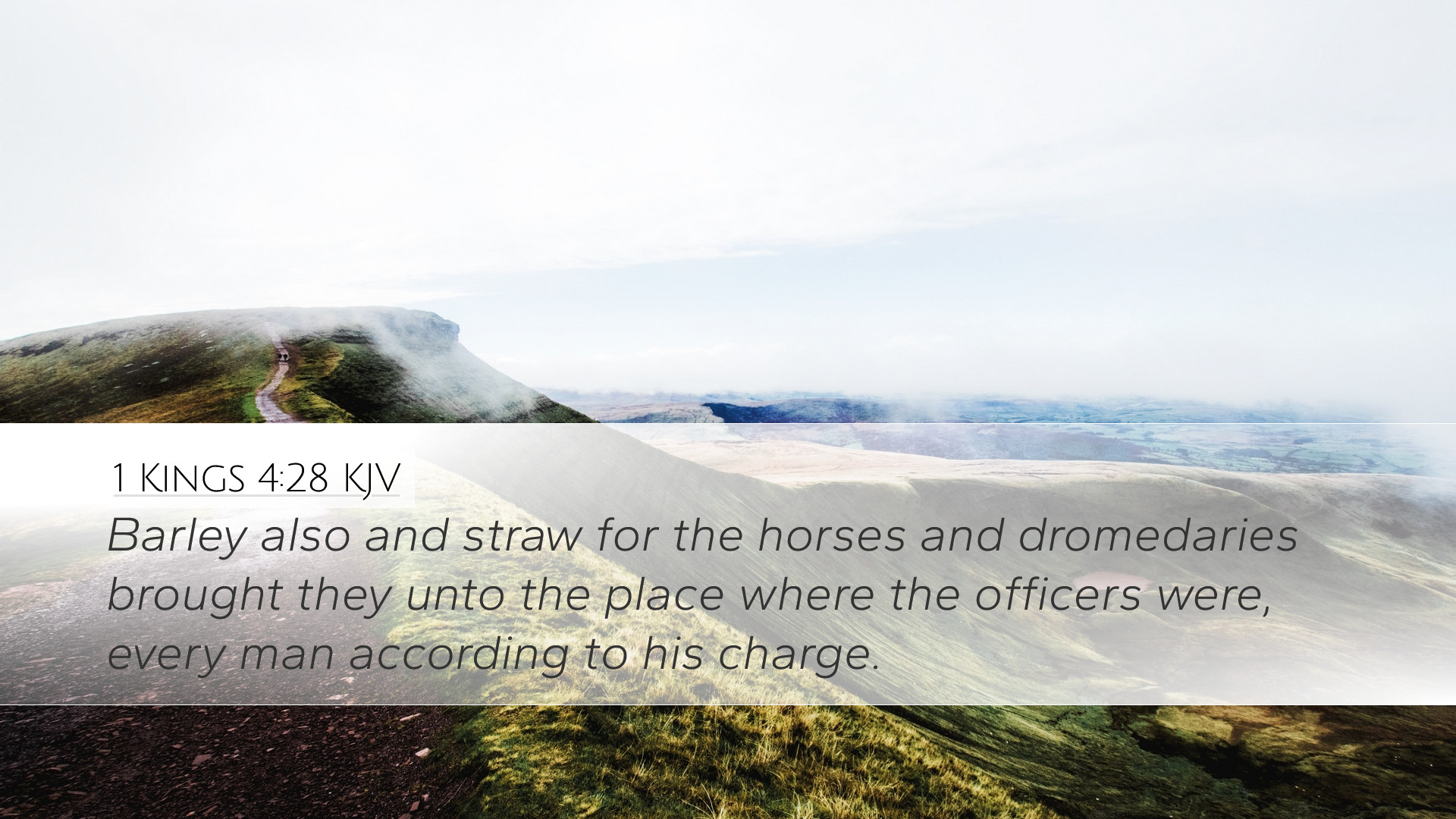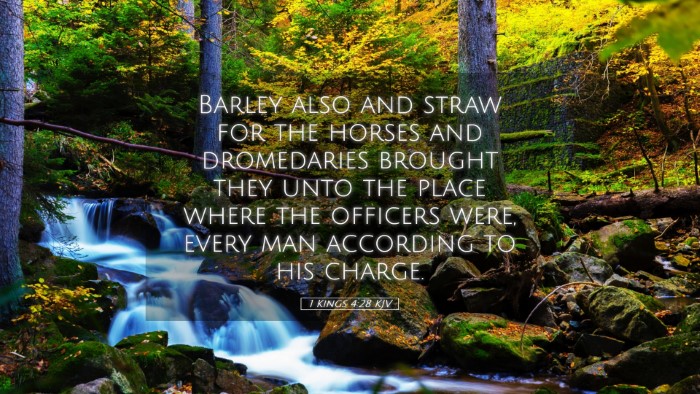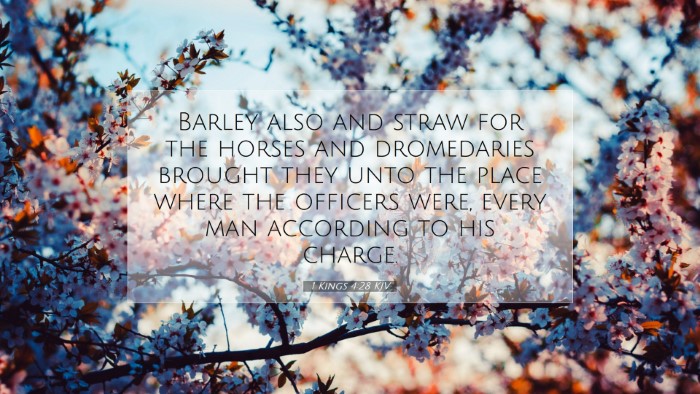Commentary on 1 Kings 4:28
1 Kings 4:28 states, "And barley also, and straw for the horses and dromedaries, brought they unto the place where the officers were, every man according to his charge." This verse is part of a larger narrative that highlights the administration and economic structures of King Solomon's kingdom. The verse specifically addresses the provision of resources for the royal stables, symbolizing both the prosperity of the kingdom and the organized governance of Solomon's reign.
Overall Context
In the context of 1 Kings 4, Solomon’s reign is depicted as one of great wisdom and prosperity. Following the establishment of the kingdom and the building of the Temple, Solomon's leadership strategies and resource management became crucial for maintaining peace and affluence in Israel.
Analysis and Insights
This verse brings forth several significant themes relevant to the understanding of biblical administration and the theological implications of providence.
1. Organization and Administration
According to Matthew Henry, this verse highlights Solomon's excellent administrative skills. The distribution of barley and straw to the horses and dromedaries reflects a well-structured supply chain.
Furthermore, Albert Barnes emphasizes that the organization of resources according to specific needs denotes a profound understanding of governance. The officers in charge were diligent and precise, ensuring every man received what he was accountable for, promoting both efficiency and accountability within the royal household.
2. Symbol of Prosperity
The mention of barley and straw indicates not only the agricultural wealth of Israel but also the security and stability provided under Solomon’s rule. Adam Clarke points out that the volume of resources available for royal stables signifies an abundance within the kingdom, suggesting that national prosperity was linked to wise leadership and divine favor.
3. The Role of Horses in the Ancient World
Horses played a critical role in the military and agricultural sectors of ancient Israel. The provision of resources for these animals indicates a preparation for warfare, as horses were essential for chariots and cavalry. Matthew Henry notes that this preparation lays a foundation for the kingdom's strength in defense.
4. Theological Implications
Theological reflections on this verse invite readers to consider the divine provision in their lives. Albert Barnes suggests that God is ultimately the source of all provision, and as Solomon's government is blessed, it serves as an illustration of God's faithfulness to His people. The structured provision for the royal stables can be seen as a metaphor for how God meets the needs of His people according to His riches in glory.
5. Lessons for Modern Governance
This verse offers valuable lessons for contemporary leaders. The necessity for accountability and organization within government structures is essential for effective administration. Adam Clarke posits that leaders today should emulate Solomon's wisdom by efficiently managing resources, being attentive to the needs of those they govern, and fostering a spirit of stewardship.
Conclusion
To summarize, 1 Kings 4:28 serves as a profound insight into the administrative practices of Solomon’s reign, reflecting the themes of prosperity, organization, and divine provision. The leaders of today can find inspiration in Solomon's wise governance, drawing from the principles of accountability and efficient resource management as demonstrated in this scriptural narrative.
Reflection Questions
- In what ways can we apply Solomon’s model of governance to our personal and community leadership roles?
- How does recognizing God’s provision shape our understanding of resource management in our lives?
- What can modern leaders learn from the importance of organization highlighted in this verse?


